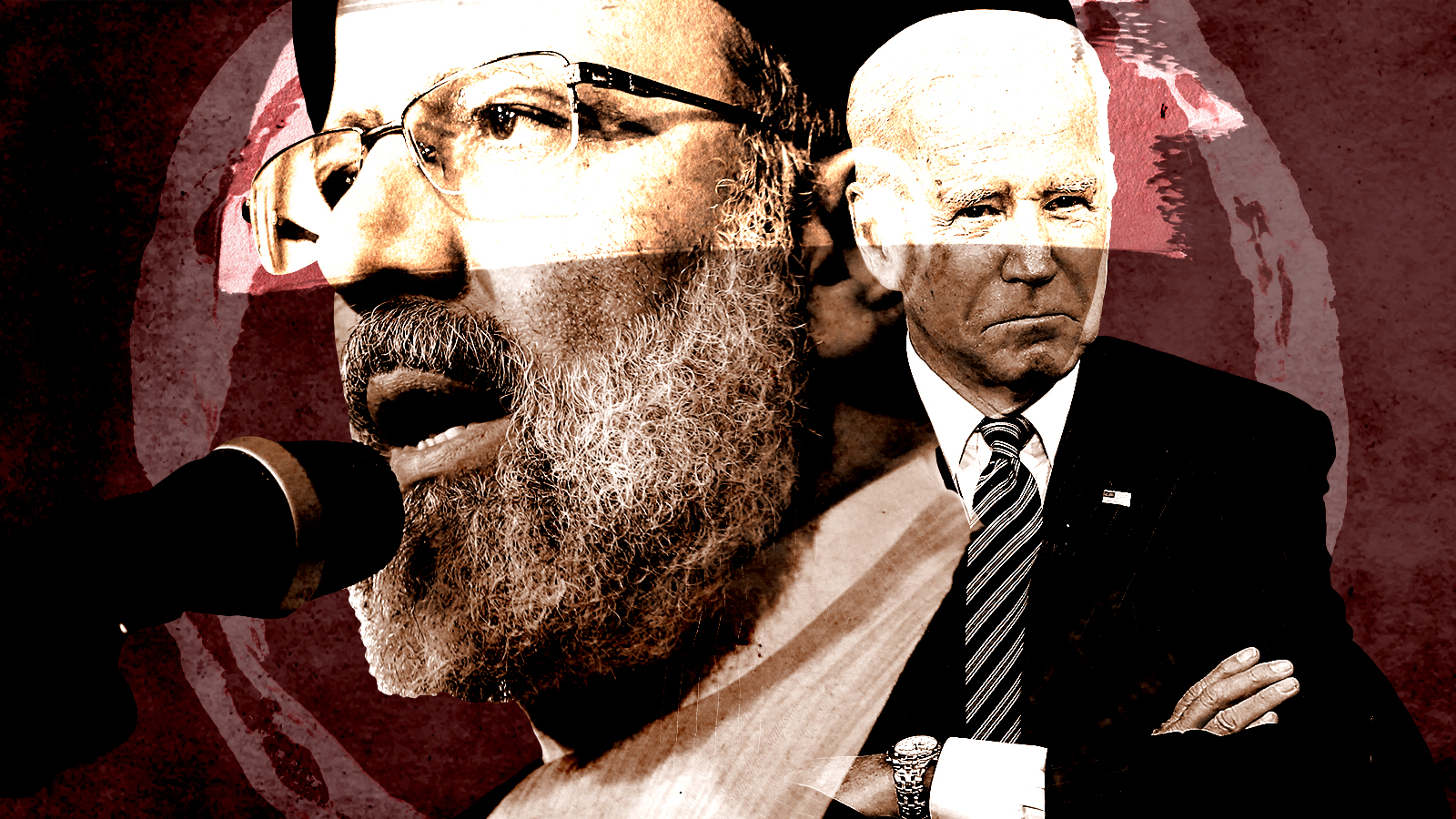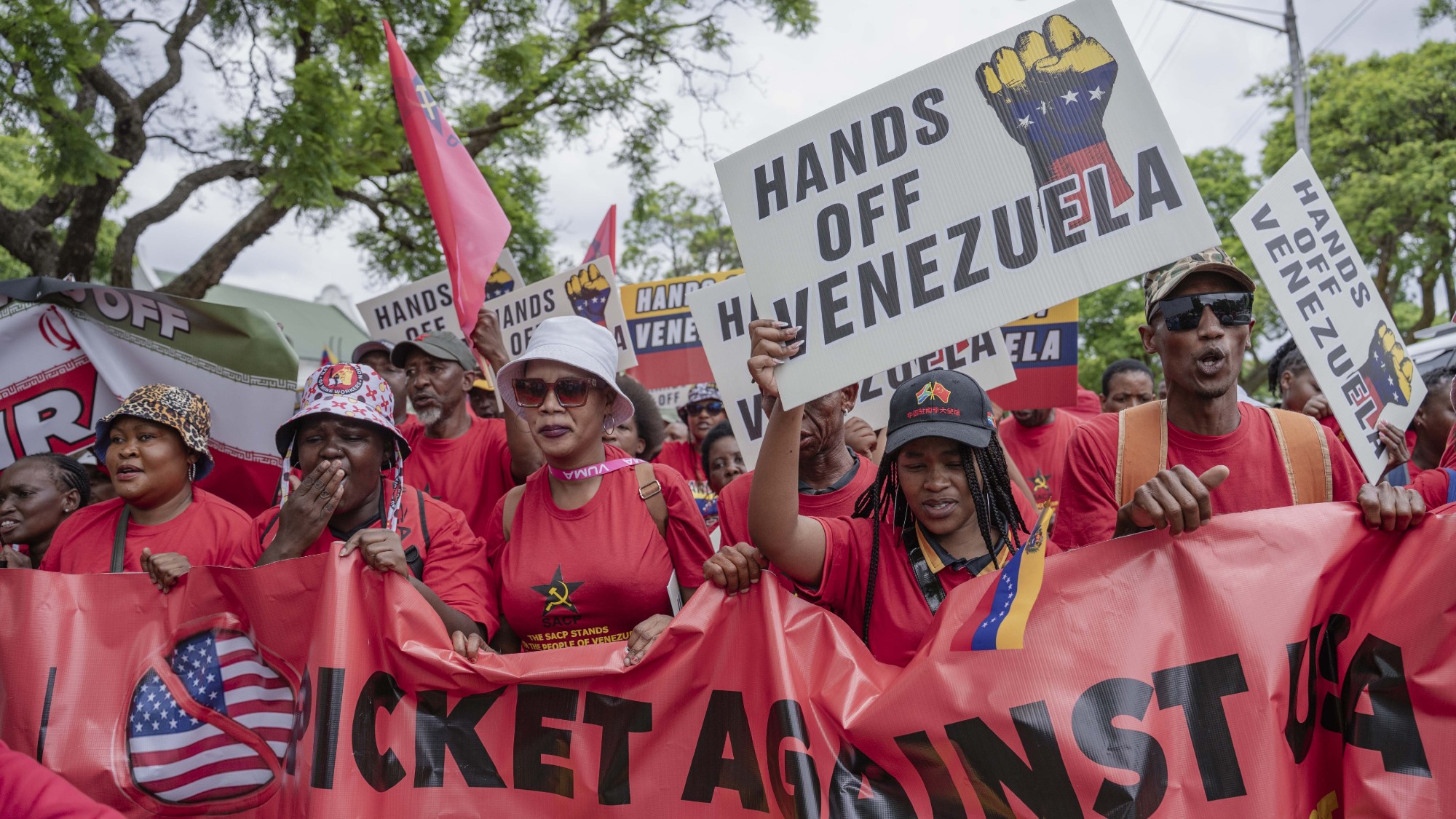Iran clearly wants a nuclear deal. Does Biden?


A free daily email with the biggest news stories of the day – and the best features from TheWeek.com
You are now subscribed
Your newsletter sign-up was successful
If Iran doesn't come back to the nuclear deal, it will probably be America's fault.
We know this because Iran announced Wednesday it will rejoin talks to revive the 2015 agreement, under which Tehran curbed its development of atomic technologies in exchange for the lifting of economic sanctions. The news is something of a surprise: The election of hard-liner Ebrahim Raisi, who won the presidency in June, had diminished hopes that the U.S. and Iran might finally come to an agreement. Apparently there's still hope.
Now it's President Biden's turn to make a good-faith effort to restore the deal. The question is whether he will take advantage of the opportunity.
The Week
Escape your echo chamber. Get the facts behind the news, plus analysis from multiple perspectives.

Sign up for The Week's Free Newsletters
From our morning news briefing to a weekly Good News Newsletter, get the best of The Week delivered directly to your inbox.
From our morning news briefing to a weekly Good News Newsletter, get the best of The Week delivered directly to your inbox.
It's hard to say. Biden sensibly campaigned last year on a pledge to re-engage Iran, but he's done a bafflingly lousy job of following through. In February, the administration rejected a proposal in which the U.S. and Iran would simultaneously re-enter the nuclear agreement; America would ease back sanctions while Iran resumed compliance. Instead, the White House essentially told Iran: "You first." (That was audacious, considering that the original deal had been scuttled for no good reason by the United States under then-President Donald Trump in 2018.) Rather than accept those unbalanced terms, Iran chose to keep growing its stockpile of enriched uranium, an activity Tehran resumed a year after Trump's exit, though it still doesn't have enough to make a bomb.
This has led the United States — along with Israel — to make increasingly belligerent sounds toward Iran. Earlier this month, Secretary of State Antony Blinken and Israeli Foreign Minister Yair Lapid discussed the possibility of a "Plan B" option if the nuclear deal isn't resurrected. They left the details unmentioned, but it seemed clear the plan would involve some level of military or covert action against Iran's nuclear facilities. "If a terror regime is going to acquire a nuclear weapon we must act," Lapid said. "We must make clear that the civilized world won't allow it."
That's no surprise: Hawks in the U.S. and Israel have seemed positively eager for war with Iran for much of the last 20 years. But bluster and threats have mostly produced pushback from Tehran; the Obama administration diplomacy that produced the original deal was probably the biggest success America and its allies have had in restraining Iran's nuclear ambitions. The country's willingness to return to the negotiating table suggests Iran would prefer a revived agreement — peace — to continued sanctions or war.
Biden has said that's what he wants, too. Here's his chance to prove it.
A free daily email with the biggest news stories of the day – and the best features from TheWeek.com
Joel Mathis is a writer with 30 years of newspaper and online journalism experience. His work also regularly appears in National Geographic and The Kansas City Star. His awards include best online commentary at the Online News Association and (twice) at the City and Regional Magazine Association.
-
 5 cinematic cartoons about Bezos betting big on 'Melania'
5 cinematic cartoons about Bezos betting big on 'Melania'Cartoons Artists take on a girlboss, a fetching newspaper, and more
-
 The fall of the generals: China’s military purge
The fall of the generals: China’s military purgeIn the Spotlight Xi Jinping’s extraordinary removal of senior general proves that no-one is safe from anti-corruption drive that has investigated millions
-
 Why the Gorton and Denton by-election is a ‘Frankenstein’s monster’
Why the Gorton and Denton by-election is a ‘Frankenstein’s monster’Talking Point Reform and the Greens have the Labour seat in their sights, but the constituency’s complex demographics make messaging tricky
-
 Big-time money squabbles: the conflict over California’s proposed billionaire tax
Big-time money squabbles: the conflict over California’s proposed billionaire taxTalking Points Californians worth more than $1.1 billion would pay a one-time 5% tax
-
 Did Alex Pretti’s killing open a GOP rift on guns?
Did Alex Pretti’s killing open a GOP rift on guns?Talking Points Second Amendment groups push back on the White House narrative
-
 Washington grapples with ICE’s growing footprint — and future
Washington grapples with ICE’s growing footprint — and futureTALKING POINTS The deadly provocations of federal officers in Minnesota have put ICE back in the national spotlight
-
 Trump’s Greenland ambitions push NATO to the edge
Trump’s Greenland ambitions push NATO to the edgeTalking Points The military alliance is facing its worst-ever crisis
-
 Why is Trump threatening defense firms?
Why is Trump threatening defense firms?Talking Points CEO pay and stock buybacks will be restricted
-
 A running list of the international figures Donald Trump has pardoned
A running list of the international figures Donald Trump has pardonedin depth The president has grown bolder in flexing executive clemency powers beyond national borders
-
 A running list of US interventions in Latin America and the Caribbean after World War II
A running list of US interventions in Latin America and the Caribbean after World War IIin depth Nicolás Maduro isn’t the first regional leader to be toppled directly or indirectly by the US
-
 The billionaires’ wealth tax: a catastrophe for California?
The billionaires’ wealth tax: a catastrophe for California?Talking Point Peter Thiel and Larry Page preparing to change state residency
